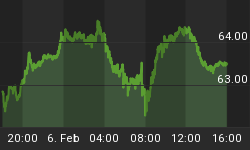Ideal Candidates For Retirement Investing, Right?

With the stock market extended and recently having experienced some renewed volatility, you may have seen calls to move into "safe" utility stocks. It is common to see utilities described as they were in a June 2014 InvestorPlace article:
Utilities are often a go-to asset class for those in retirement, as the sector provides plenty of big income opportunities. After all, consumers, businesses and municipalities still need to power their operations and cool their homes, even in tough economic times. Water still needs to flow and electricity hums through power lines. Ultimately, utilities' stable cash flows and recession-resistant nature make them ideal candidates for investing during retirement.
While utilities do have real world advantages during a recession over more economically-sensitive businesses, that does not necessarily mean utility stocks will perform well during a recession/bear market. Therefore, it is prudent to ask:
Did utility stocks help investors protect their wealth during the 2008 financial crisis?
You can decide. The table below shows the bear market (2007-2009) performance of numerous utility stocks that are often paired with the terms defensive, stable, and conservative.

Steady Dividend Does Not Mean Safe Stock
A recent Kiplinger's article described utilities this way:
For steady, albeit modest, growth and above-average dividend yields, it's still hard to top utilities.
Investors should not confuse the benefits of a "steady" dividend with a low-risk investment. It is true utilities tend to produce a stable source of income. However, what good is Northeast Utilities 3.40% annual dividend if the investor loses 30% in a bear market? Dividends are only a small part of total return, especially during bear markets/recessions.
How Would A 30% Loss Impact Your Portfolio?
Since portfolio values have greater meaning than percentages, the table below shows what our portfolios would be worth if we invested equal amounts into the 18 utility stocks shown above that lost an average of 30.08% during the 2007-2009 bear market. Since the share prices used in this analysis are adjusted for dividends, the figures below account for income payments, which shows dividends will not save an investor in a bear market.

More on prices that are adjusted for dividends From Yahoo Finance:
Adjusted Close provides the closing price for the requested day, week, or month, adjusted for all applicable splits and dividend distributions. Data is adjusted using appropriate split and dividend multipliers, adhering to Center for Research in Security Prices (CRSP) standards.
Investopedia expands on the benefit of using adjusted closing prices, as we did in this analysis:
The adjusted closing price is a useful tool when examining historical returns because it gives analysts an accurate representation of the firm's equity value beyond the simple market price. It accounts for all corporate actions such as stock splits, dividends/distributions and rights offerings.
Investment Implications - Contingency Plans Needed
Should investors ignore the potential benefits of investing in utilities? No, but they should also understand the real world risks associated with any buy-and-hold-and-hope investment strategy. Many investment systems focus on favorable entry points, but provide little or no guidance for when to prudently reduce risk. Utilities may turn out to be fine investments over the next five years, but the same thing could have been said in October 2007 just before they plunged 30%. While you may have been told there was nothing investors could do in 2008, there were a number of ways to mitigate (not eliminate) investment risk during the financial crisis. While there is no perfect method or magic bullet, this 2008 video describes the concepts of paying attention and adjusting rather than hoping and praying.















